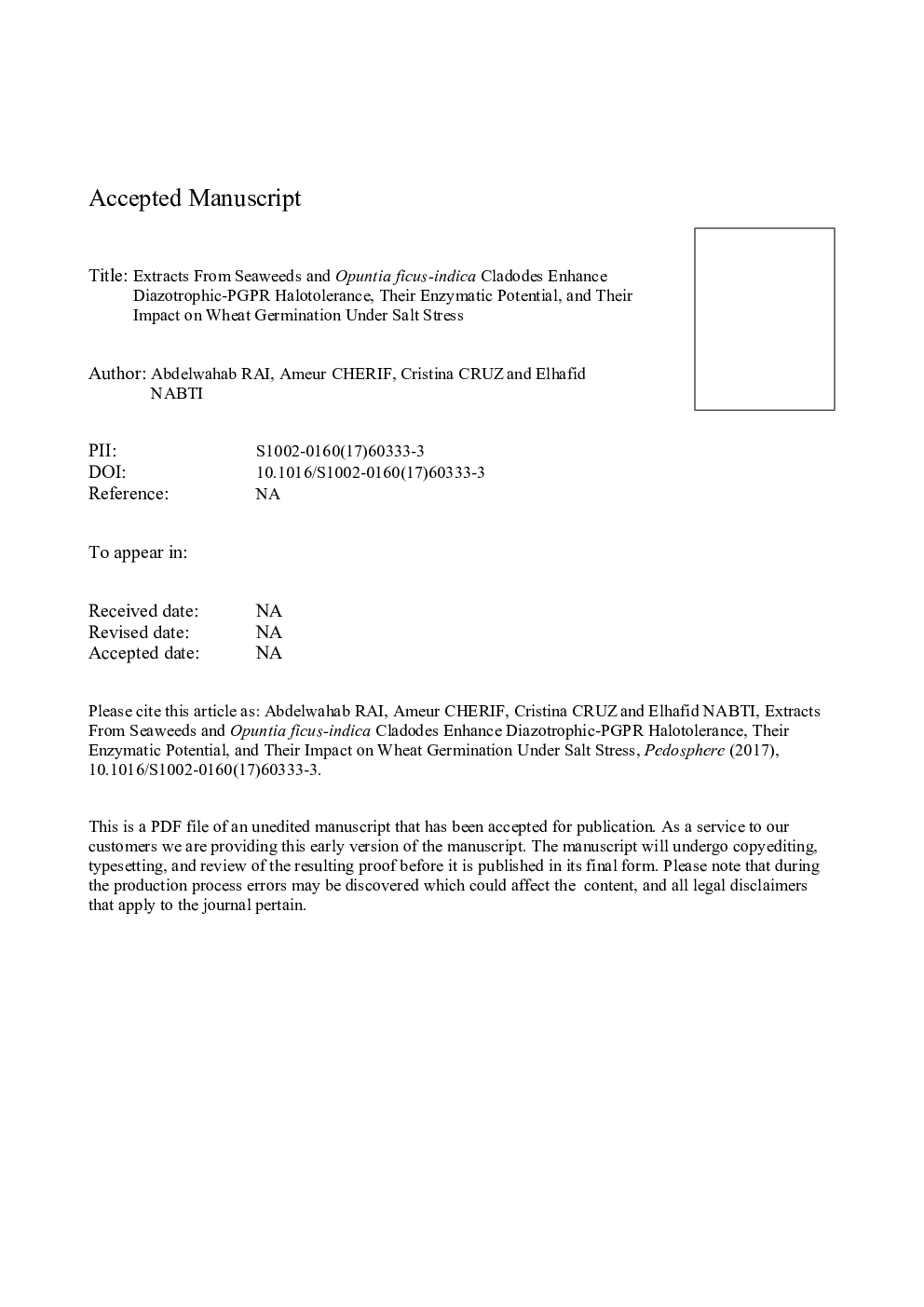| Article ID | Journal | Published Year | Pages | File Type |
|---|---|---|---|---|
| 8895383 | Pedosphere | 2018 | 17 Pages |
Abstract
Soil salinity, which affects more than 6% of the earth's land surface and more than 20% of its irrigated areas, is a major threat to agriculture. Diazotrophic bacteria are among the functional groups of soil microbiota that are threatened by this abiotic stress, as their activity is mostly inhibited by salt stress. Seventy bacterial strains with distinct characteristics were isolated from soils by using N-free Jensen's selective medium. Based on their ability to produce metabolites of agricultural interest, four strains were selected and identified as Flavobacterium johnsoniae, Pseudomonas putida, Achromobacter xylosoxidans, and Azotobacter chroococcum. The selected strains were grown at different NaCl concentrations (0-600 mmol L-1 in N-free broth and 0-2 000 mmol L-1 in Luria-Bertani medium) in the presence and absence of glycine betaine (GB), aqueous and hydro-alcoholic extracts from marine macroalgae, Ulva lactuca and Enteromorpha intestinalis, and Opuntia ficus-indica cladodes. The selected bacterial strains, GB, and the aforementioned extracts were tested for their ability to promote the germination of wheat (Triticum durum) seeds at 0-300 mmol L-1 NaCl. Compared with the results obtained with the synthetic osmoprotectant GB, the extracts from O. ficus-indica, U. lactuca, and E. intestinalis significantly promoted bacterial growth and seed germination under salt stress.
Keywords
Related Topics
Life Sciences
Agricultural and Biological Sciences
Soil Science
Authors
Abdelwahab RAI, Ameur CHERIF, Cristina CRUZ, Elhafid NABTI,
